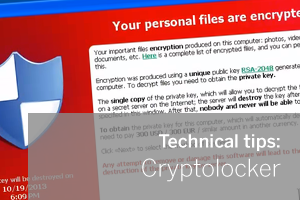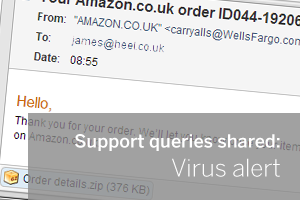12
Mar
SecurityGateway v6.0 – Integrated Archiving and Improved Data Leak Protection Features
 The mail remains the access to point to your business for cyber-criminals.
As an IT administrator, you are blessed with unenviable task
that the vast majority of cyber criminals can get access to your
Well, up until today, the answer would have been SecurityGateway, the email software firewall from Texas-based email security specialist,
the software firewall that sits between your Exchange, MDaemon, Kerio or Smartermail server, and your router, protecting your organisation from spam, viruses, spoofing, phishing and more.
In this post, we take a whistle-stop tour of the new features.
As always, this is just our highlights, a comprehensive list of all new features and enhancements can be viewed in the SecurityGateway Release Notes.
The mail remains the access to point to your business for cyber-criminals.
As an IT administrator, you are blessed with unenviable task
that the vast majority of cyber criminals can get access to your
Well, up until today, the answer would have been SecurityGateway, the email software firewall from Texas-based email security specialist,
the software firewall that sits between your Exchange, MDaemon, Kerio or Smartermail server, and your router, protecting your organisation from spam, viruses, spoofing, phishing and more.
In this post, we take a whistle-stop tour of the new features.
As always, this is just our highlights, a comprehensive list of all new features and enhancements can be viewed in the SecurityGateway Release Notes.
11:57 /
SecurityGateway


 Independent analyst and security director for EncSec, Graeme Batsman has appeared in, and advised, publications including SC Magazine, The Independent, Microsoft, Metro, Experian and
Independent analyst and security director for EncSec, Graeme Batsman has appeared in, and advised, publications including SC Magazine, The Independent, Microsoft, Metro, Experian and  Cryptolocker is making the headlines for all the wrong reasons at the moment.
In the run up to Christmas where there's likely to be a plentiful supply of email purchase confirmations flowing, I wanted to share my recommendations for keeping your data safe and secure.
Cryptolocker is making the headlines for all the wrong reasons at the moment.
In the run up to Christmas where there's likely to be a plentiful supply of email purchase confirmations flowing, I wanted to share my recommendations for keeping your data safe and secure.
 We've seen a sharp increase today in new virus variants getting through to email users due to the speed at which they're evolving to avoid detection.
We've seen a sharp increase today in new virus variants getting through to email users due to the speed at which they're evolving to avoid detection.